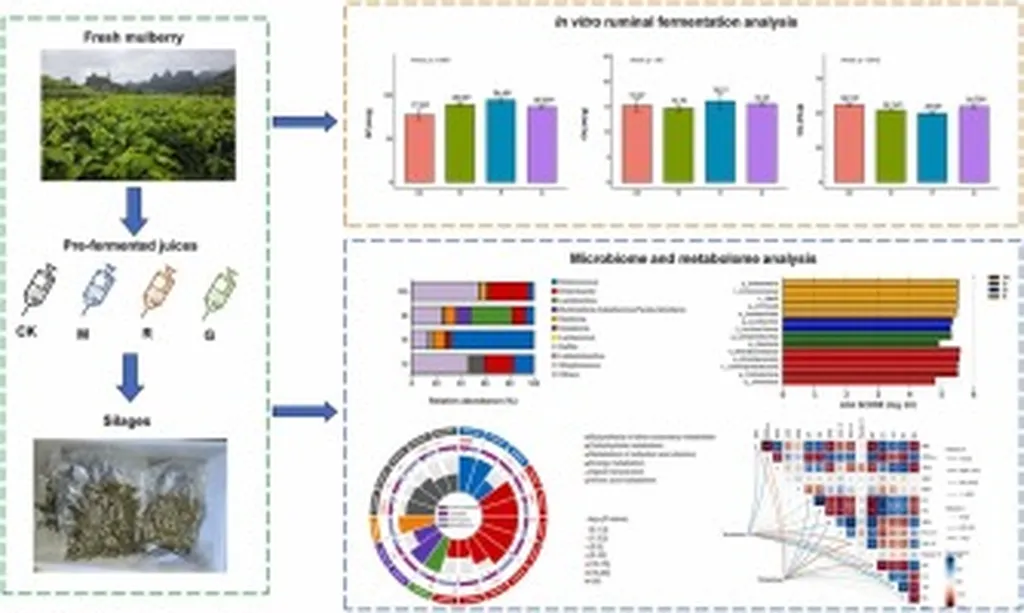In the ever-evolving landscape of ruminant nutrition, a recent bibliometric analysis published in *Veterinary World* (translated as *World of Veterinary Medicine*) has shed light on the global research trends surrounding silage feed and its impact on rumen fermentation. Led by Tri Rachmanto Prihambodo from the Department of Animal Science at Jenderal Soedirman University in Indonesia, the study offers a comprehensive overview of the field, highlighting key contributors, emerging trends, and the potential for future innovations.
Silage, a crucial component in ruminant diets, significantly influences rumen fermentation, animal productivity, and environmental sustainability. Despite its importance, a systematic exploration of global research trends and collaborations in this domain has been lacking—until now. Prihambodo and his team conducted a thorough bibliometric analysis of 1,007 documents published between 1961 and 2024, retrieved from the Scopus database. Their findings reveal a dynamic and rapidly expanding field, with China, the United States, and Canada emerging as the top contributors.
“Publication output has increased significantly since 2010, indicating a growing interest and investment in silage research,” Prihambodo noted. Major research themes identified include silage quality, microbial fermentation, methane mitigation, and feed efficiency. Core journals such as *Journal of Dairy Science* and *Journal of Animal Science* have been central to disseminating this research, while leading institutions like China Agricultural University and the University of Florida have demonstrated high productivity and citation impact.
Keyword analysis highlighted emerging trends, including the microbiome, methanogenesis, and sustainability. These trends suggest a shift towards interdisciplinary approaches that integrate microbiology, environmental science, and precision agriculture. Collaboration network analysis revealed strong regional clusters, with North America and Europe forming central hubs. However, Asia and South America, while showing growth, remain less integrated into the global research network.
The study’s findings have significant implications for the energy sector, particularly in the context of methane mitigation. Ruminants are a major source of methane emissions, a potent greenhouse gas. By optimizing silage practices and enhancing rumen fermentation, researchers aim to reduce methane emissions and improve livestock performance. “Future research should focus on metagenomics, smart technologies like Artificial Intelligence and the Internet of Things, and policy-driven strategies to optimize feed systems and support sustainable livestock production,” Prihambodo emphasized.
As the field continues to evolve, the need for global collaboration becomes increasingly apparent. By fostering stronger international partnerships and addressing regional disparities, researchers can drive innovation and develop sustainable solutions for the future of ruminant nutrition. This study, published in *Veterinary World*, serves as a crucial step in that direction, offering valuable insights and setting the stage for future developments.

